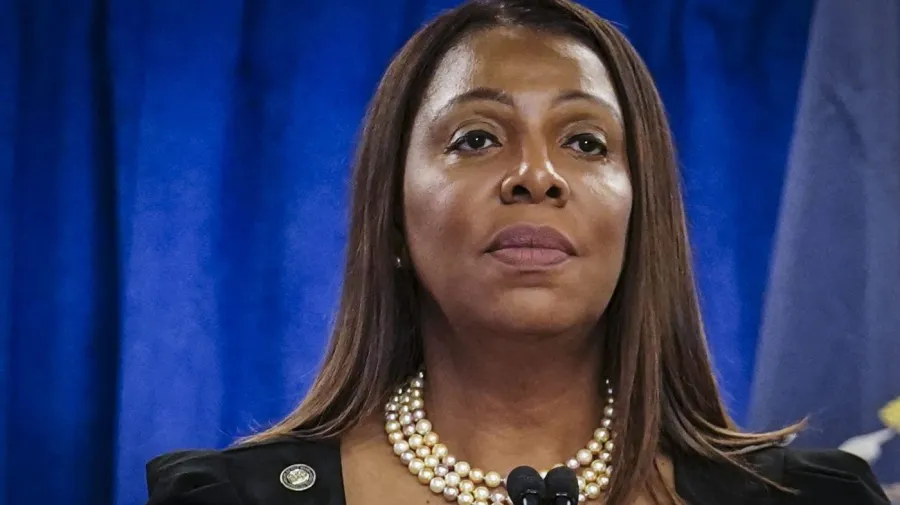New York Attorney General Letitia James (D) on Friday demanded that a Nassau County official immediately repeal an executive order restricting the ability of transgender women and girls to participate in athletic events at county-run facilities, arguing it is “in clear violation” of state law.
“The law is perfectly clear: you cannot discriminate against a person because of their gender identity or expression. We have no room for hate or bigotry in New York,” James said in a statement , referring to an executive order issued last week by Nassau County executive Bruce Blakeman.
Blakeman’s order, which prohibits athletic events that allow transgender girls to participate in accordance with their gender identity from being held at county-run facilities, is “transphobic and blatantly illegal,” James said.
“Nassau County must immediately rescind the order, or we will not hesitate to take decisive legal action,” she said.
Under Blakeman’s executive order , which was signed Feb. 22 and took effect immediately, an individual’s gender is defined as their “biological sex at birth.” Local athletic teams, leagues, organizations and programs must “expressly designate” participation based on members’ sex assigned at birth, and permits must be denied to those who allow transgender girls to compete with or against cisgender girls.
Blakeman at a news conference last week said transgender athletes, regardless of their gender identity, are still allowed to compete in all-boys or coed leagues in the county. The order applies to more than 100 public venues, including parks, baseball fields, basketball courts, swimming pools and ice rinks.
In a cease and desist letter sent Friday to Blakeman, James’s office demanded that the executive order be repealed within five business days.
“Failure to comply with this directive may result in further legal action,” Sandra Park, chief of the office’s Civil Rights Bureau, wrote in the letter.
Blakeman’s executive order, according to Park’s letter, violates the state’s human rights law, which makes it illegal for places of public accommodation, including those owned or operated by a local government entity, to discriminate based on sex or gender identity or expression.
“These prohibited types of discrimination are exactly what the Order imposes on transgender women and girls participating in women and girls’ teams in the County, as well as teams, leagues, and other sports entities and organizations that welcome the participation of transgender women and girls, but which will have to discriminate against them to comply with the Order’s terms,” Park wrote.

By only targeting transgender women and girls, the executive order will also impose increased scrutiny on female sports teams, Park wrote, and may result in subjecting female athletes to “intrusive and inappropriate inquiries or verification requirements that will harm cisgender and transgender women and girls alike.”
Officials in at least two dozen states with similar restrictions on transgender athletes have grappled with how to enforce them. Officials in Florida last year weighed tracking student-athletes’ menstrual cycles, though that proposal was eventually voted down by the state’s high school athletic association after widespread outrage.
In Utah, a state school board member was censured last month after she falsely suggested in a Facebook post that a female student in her district is transgender, provoking a tidal wave of online threats against the student and increased security at her school.
Blakeman on Friday signaled no plans to rescind his executive order, despite the state’s promise of legal action.



